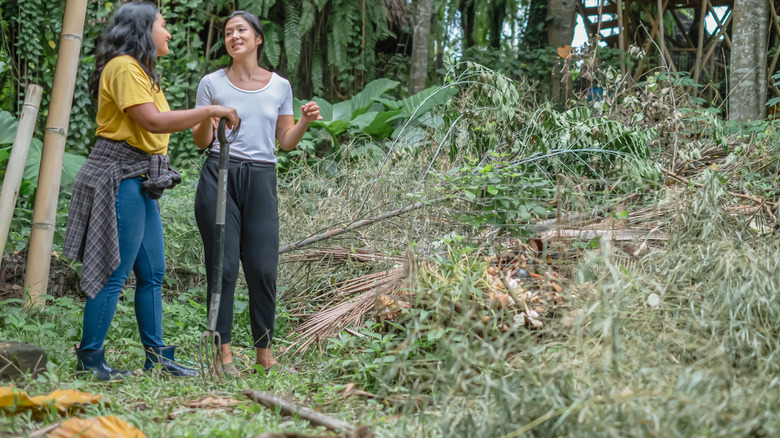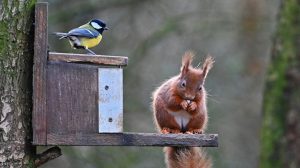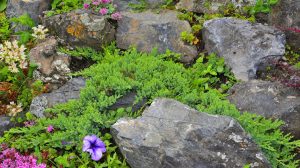It’s common to have a few fallen tree branches, a pile of leaves in fall, and perhaps trimmings from your shrubs throughout the year. You may simply put these in a trash can for the city to haul away, but keeping a brush pile in your backyard instead creates a way to support your local wildlife. You may notice critters taking pieces to build their nests. More commonly, they provide a way for smaller animals to hide, concealed from predators lurking nearby or flying overhead.
A brush pile can be an easy way to minimize what’s heading to the landfill from your home. Depending on where you place it and what you put in it, it may be one of the best ways to welcome deer, birds, and other animals into your backyard. Set up a few trail cameras nearby and watch what happens when you leave these natural materials in your environment. There are a few tips to ensuring it’s done well and safely, though. Of course, it also means you no longer have to tie, bundle, and lug these items up to the end of the driveway or pay someone to remove them for you.
The benefits of a brush pile for local animals

To determine if a brush pile is a good idea for your backyard, consider what may happen if you leave it. This pile may include just about anything natural, even the Christmas tree, after you’ve removed every bit of tinsel from it! Placed far from your home, a pile of these items can easily become a den or nest for animals, including foxes or possums. They also provide shelter for difficult weather conditions throughout the year.
A brush pile that’s smaller but built to include open spaces throughout could attract caterpillars who ultimately become beautiful butterflies that you can watch with a pair of binoculars work through that transition. Beetles, ladybugs, and frogs may also enjoy the confines of these small spaces. These piles also create a way for smaller animals, like chipmunks and squirrels, to hide from predators passing by the area, giving them a bit longer life.
Other times, the brush pile becomes a welcoming spot to those passing by. Deer may use it to munch on and then sit and relax on the likely cool leaves. You’ll likely see numerous birds take twigs and leave to form nests within the pile or nearby, allowing you to capture the lifecycle of these animals. The insects that call the base of these brush piles home are an excellent food source for birds, which means you may attract a much larger assortment of them to your yard.
Tips for creating a brush pile for wildlife

To see any of these benefits of a brush pile, you’ll need to build them properly. You can often toss items onto the pile throughout the year, but you’ll want to start with a foundation of larger sticks and tree branches. Placing these at the base of the pile allows more air to circulate under and between them, encouraging the growth of natural habitat. That’s going to attract more critters who can ultimately help to pollinate your garden, too.
Never use any chemical-covered material here. Don’t place Christmas trees that have ornaments or inorganic material on them. Avoid pressure-treated wood products, too, since these contain harsh chemicals that could impact the health of local wildlife. Any wood that’s been painted shouldn’t be included either. All of those chemicals can get into the local groundwater.
Add new materials to the top throughout the year, such as leaves during the fall, trimmings from bushes and flowering plants during the early spring, and even grass clippings during the warmer months. You may even want to place wildflowers and other perennial seeds and seedlings in the area to create a beautiful display during the spring months.



